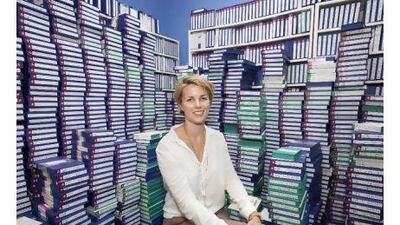It is irresponsible to suggest, with no evidence, that a killing was racially motivated, as a US police officer does in your news report Emirati officer is shot dead by robbers in US (August 9).
As a former resident of Houston I know there is plenty of crime there, but I also know there are many motives. There is racism in the city, but to suggest that a man was killed merely for wearing a kandura risks raising tensions needlessly.
If race or nationality does turn out to be involved in the crime, there will be time to consider that then. But don't shout "fire" before you see any flames or smell any smoke.
Leonard Kennedy, Abu Dhabi
Lebanese got help from Hizbollah
In the opinion column Lebanese attitudes towards Iran defy oversimplification (August 9) it looks like the author is grasping for straws to prove that Iran is a horrible influence in Lebanon.
Iran has in fact made a major contribution to the reconstruction of Lebanon after the disastrous invasion by Israel. So why should the Lebanese have a negative opinion of Iran?
In contrast, what has the US done to benefit Lebanon? Nothing! In fact, the US supplied the weapons that were used to attack Lebanon.
George Doerth, US
Clearly, Hizbollah does not have the best interests of the people of Lebanon at heart. The people of Lebanon must know this, just as they know whose puppet Hizbollah is. Perhaps people are already too intimidated to tell a pollster what they really think.
Any time a state allows anyone to operate an armed militia, it starts to become a failed state.
Marcel Khoury, Dubai
Somalis need iftar money
How many of us have donated to Somalia?
Every day we are reminded that it is Ramadan by iftar buffet ads: "Enjoy a lavish iftar buffet" and "celebrate this Ramadan in style".
We hear of the food wasted at hotels after each iftar buffet, and also about children dying of starvation in Somalia.
Have our lavish lifestyles made us immune to the pain and suffering of others? We should give lavishly to charity instead.
Wardah MK, Abu Dhabi
Spain really needs British tourists
Spaniards are famous for complaining about obnoxious British tourists flooding into Spain.
Now, if that trend is slowing (British love affair with Spain wanes, August 9), we'll see if those complainers are any happier. They need tourist revenue more than ever these days.
Nigel Champion, Abu Dhabi
Governments can't create jobs
Your headline US has a chance to pass job-creation legislation (August 9) is misleading.
True, patent reform and free trade deals will be good for the economy. But no matter what it does, governments can't "create jobs" - if they could, they should just create jobs for everyone.
All government can do is what these bills will help do: create the optimum conditions for private enterprise to create and sell goods and services people want to buy. Usually this means less government, not more.
Tim Whitney, Doha
Americans really can be 'ugly'
The old cliché of the "ugly American" keeps being reinforced, most recently by the man in your report US army employee in the dock over insults (August 9).
The idea that anyone newly arrived in a country would start sneering at the local customs is just … well, it had to be an American, didn't it? Imagine what would happen to anyone from this part of the world who started insulting officials at a US airport!
Veejay Chandwani, Dubai
Correspondents a brave bunch
Thank you for the interesting piece on female correspondents in the Middle East's danger spots (In the line of duty, August 9).
We were impressed with the observations of some reporters that in certain ways it's easier for women to gather news than men - they can talk to women, for example, much more easily than men can.
Still, the cases mentioned show that this work can also be more dangerous, in some ways, for women than for men.
But for anyone, coming into this region to cover violence and conflict demands courage; everyone who does this deserves the respect of "news consumers" everywhere.
Julia and Tom Newsome, US

